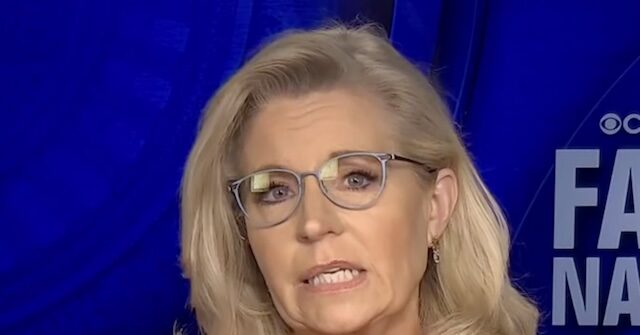Former Representative Liz Cheney, a notable Republican voice, recently expressed insights during an interview on CBS’s “Face the Nation,” suggesting that a significant number of Republicans may choose to cast their votes for Vice President Kamala Harris discreetly. This discussion unfolded in the context of a changing political landscape and a pronounced gender divide among voters. Host Margaret Brennan introduced the segment by highlighting Cheney’s advocacy for voters to cast their ballots according to their beliefs without feeling pressured to disclose their decisions. In this environment of increasing polarization, this sentiment resonates with many, revealing a deeper concern regarding personal agency in the electoral process, particularly among women who may feel marginalized or unheard in their domestic spheres.
The conversation took an interesting turn as Brennan pointed out that the notion of hiding one’s vote almost evokes sentiments of bygone eras, making listeners question whether women today genuinely fear disclosing their voting preferences to their partners. Cheney affirmed this reality, noting an emerging coalition of women, both pro-life and pro-choice, who are rallying in support of Harris due to recent restrictive laws affecting women’s healthcare rights in states such as Texas and North Carolina. This collaboration signifies an essential shift in the electorate’s dynamics, demonstrating how pressing social issues can transcend ideological boundaries, motivating voters to associate with candidates who advocate for fundamental rights and protections.
Cheney emphasized that the political atmosphere has given rise to an unprecedented number of Republicans publicly endorsing Harris, indicating a substantial shift within the party. She highlighted that this phenomenon is not driven solely by a desire for political alignment but also by the fear of backlash from influential party figures, such as Donald Trump. This fear has created a climate where some voters opt to support Harris in secrecy, prioritizing personal beliefs over party loyalty. According to Cheney, a wave of both men and women will likely enter the voting booth and choose to back Harris, driven by their convictions rather than external pressures, showcasing a potential realignment of priorities among those who traditionally identify with the Republican Party.
The issues surrounding female voters, particularly their voting autonomy, continue to be spotlighted as more women navigate familial and societal pressures regarding political preferences. The influence of public figures like former First Lady Michelle Obama, who underscored that women’s votes are personal and should remain private, illustrates a growing recognition of the importance of safeguarding individual choice in the electoral process. The emphasis on voting as a secret act reaffirms an essential democratic principle: that every citizen should have the right to determine their political affiliations without undue influence or fear of reprisal from their social circles.
Furthermore, the continued advocacy for women’s rights and health has become a central theme in the electoral discourse, prompting a reexamination of candidate platforms and the implications of existing laws on voters’ decisions. The increasing unity among women across traditional party lines signifies a broader engagement with issues like reproductive rights and healthcare, compelling candidates to address these topics more thoroughly. Cheney’s comments reflect a deeper cultural and political awakening among women, who are asserting their voices and priorities in an electoral system that has, for too long, marginalized their experiences and needs.
As the political climate evolves, the conversation around voting preferences exemplifies a pivotal moment in American democracy where voters, particularly women, are prioritizing their beliefs over party allegiance. Cheney’s assertion that many people will likely vote for Harris while maintaining silence about it speaks volumes about the complexities of voter sentiment that transcend traditional affiliations. As we approach the election, the ramifications of these shifts in voter psychology and alliances could reshape not only the outcomes but also the broader political landscape in the United States, illustrating the continuing evolution of voter engagement and the significance of preserving individual choice within the democratic process.

